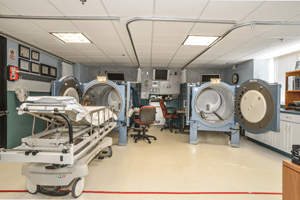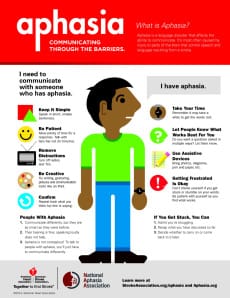Healthcare Headlines Blog
-
April 10, 2024
By Dr. Dean French, MD, CPPS
Kindred Hospitals provide specialized acute care and rehabilitation for medically complex patients leaving the ICU or med-surg unit. Take a look at 5 care initiatives at Kindred that help improve outcomes and reduce readmissions.
Read Full Post
-
February 17, 2015
By Kindred Healthcare

Hyperbaric oxygen therapy (HBOT) is a process in which a patient breathes 100 percent oxygen at above-normal atmospheric pressure. The process increases the delivery of oxygen to the body, enhancing the body’s natural healing process.
The Hyperbaric Manager at Kindred Hospital Kansas City has seen the positive effects of HBOT on persistent wounds firsthand.
"For those who have tried other therapies with no results, they can find great benefits with hyperbaric oxygen wound therapy," she says. It can be "life-changing," she adds, when a patient no longer has to deal with a wound that wouldn't heal and was impacting his daily life.
Read Full Post
-
June 18, 2014
By Kindred Healthcare

Aphasia is a little-known language disorder that affects nearly one-third of stroke victims. It occurs when there is damage to the communications hub in the left side of the brain. While aphasia disrupts communication skills, it does not affect a person’s thinking skills.
There are many types of aphasia, but the most general categories are receptive and expressive aphasia. With receptive aphasia, the person can hear a voice or read print, but may not understand the meaning of the message. With expressive aphasia, the person knows what he or she wants to say yet has difficulty communicating it to others.
Someone with receptive aphasia may:
- Have difficulty comprehending what others say
- Have difficulty with reading comprehension
- Be unaware that they are using words incorrectly
Someone with expressive aphasia may:
- Be able to understand what others say
- Have difficulty saying what they are thinking
- Speak in a jumbled manner
- Say a word different than the one they want to say
- Have difficulty writing
-
May 29, 2014
By Kindred Healthcare
It is widely recognized by policymakers and payers that our nation’s healthcare system is fragmented, creating gaps in care for patients. Researchers believe that part of this fragmentation is a result of the separate payments furnished by Medicare for each provider type that a patient may encounter during a single care episode.
Read Full Post
-
March 25, 2013
By Ryan Squire
The Bird ventilator, named for inventor Forrest Bird, was the first mass-produced mechanical vent, and it used compressed air technology and required no electrical power. Dr. Bird spoke at Kindred’s 2009 Clinical Impact Symposium, and signed the vent that is pictured and on display in the Kindred Support Center lobby.
Known by some as the “father of mechanical ventilation,” Dr. Bird tested his first mechanical ventilators by piloting his own planes to medical schools and asking doctors for access to their sickest patients. Patients who had tried all the available options and were expected to die of cardiopulmonary disease.
Read Full Post
-
December 15, 2012
By Ryan Squire
 ProTouch, Kindred’s proprietary electronic medical record (EMR) system, helps clinicians paperlessly access and manage important patient information including vital signs, medications, progress notes and lab and radiology results. ProTouch monitors in patient rooms are continually updated as needed, and interface with a patient’s ventilator in order to provide real-time respiration information. Recent enhancements to the system include documentation and display of multi drug-resistant organisms with flagged alerts, and improvements to the searchability of transcribed reports including display by date, report type, dictator and signature status.
ProTouch, Kindred’s proprietary electronic medical record (EMR) system, helps clinicians paperlessly access and manage important patient information including vital signs, medications, progress notes and lab and radiology results. ProTouch monitors in patient rooms are continually updated as needed, and interface with a patient’s ventilator in order to provide real-time respiration information. Recent enhancements to the system include documentation and display of multi drug-resistant organisms with flagged alerts, and improvements to the searchability of transcribed reports including display by date, report type, dictator and signature status.
The next big thing? ProTouch will soon be available as an app for the iPad, allowing our clinicians to access and update important patient information even more efficiently.
Read Full Post